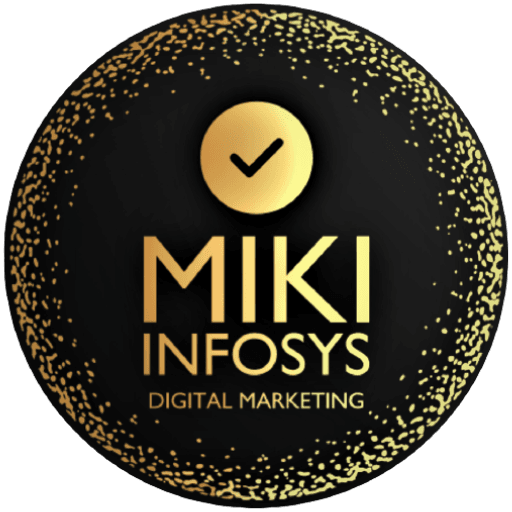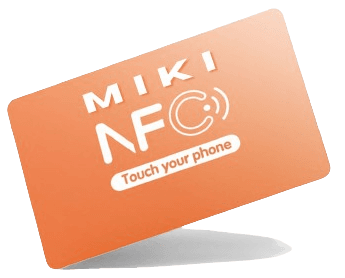MiKi Infosys
Mastering the Digital Landscape: Cutting-Edge Digital Marketing Strategies
Introduction
Welcome to the digital age, where the landscape of marketing is constantly evolving. In this era of technological advancement and changing consumer behavior, mastering the digital landscape has become crucial for businesses to stay competitive and relevant. This article will delve into the realm of digital marketing strategies, exploring their significance in today’s business environment and uncovering the key elements that make them effective.
Understanding the Digital Landscape
The digital landscape encompasses the online platforms and channels where businesses promote their products and engage with their target audience. This includes websites, social media, search engines, email, and other digital mediums. Understanding the digital landscape involves comprehending the dynamics of online consumer behavior, the impact of digital technology, and the trends that shape the digital space.
Importance of Digital Marketing Strategies
Digital marketing strategies are essential for businesses to reach and connect with their audience in a highly competitive online market. These strategies enable companies to effectively utilize digital channels, analyze consumer data, and create targeted campaigns that yield measurable results. In today’s digital-centric world, having well-crafted digital marketing strategies is paramount for business growth and brand success.
Key Elements of Effective Digital Marketing Strategies
Effective digital marketing strategies comprise various key elements that work synergistically to achieve marketing objectives. These elements may include comprehensive market research, defining clear goals and target audience, compelling content and creative, omnichannel approach, performance tracking, and continuous optimization. Integrating these elements into a cohesive strategy empowers businesses to maximize their digital presence and attain sustainable marketing success.
Cutting-Edge Digital Marketing Strategies
Staying ahead in the competitive digital landscape requires adopting cutting-edge digital marketing strategies. Businesses must craft unique marketing approaches that resonate with their target audience. To do this, leveraging social media platforms is essential. These platforms offer powerful tools for engagement, making it easier to reach specific demographics.
Content marketing has proven to be a strong tactic as well. Creating valuable, informative content not only boosts brand visibility but also establishes credibility. In addition, utilizing SEO best practices can significantly enhance organic traffic and improve search engine rankings. Email marketing campaigns designed with creativity can nurture leads and convert them into loyal customers.
Lastly, as user behavior evolves, employing AI and chatbots enhances customer experience. By effectively integrating these strategies, businesses can position themselves as leaders in their industries, driving growth and enhancing brand awareness.
Personalization in Digital Marketing
Personalization has become a key driver in digital marketing success. By catering to the unique preferences of each customer, brands can create more meaningful interactions. This can be achieved through data analytics. Understanding consumer behavior allows businesses to tailor their messaging and offerings accordingly.
Segmentation plays a vital role here. By dividing audiences into smaller groups based on interests and demographics, companies can craft specific campaigns that directly appeal to those segments. This targeted approach enhances engagement and fosters brand loyalty.
Additionally, personalized email marketing and website experiences can elevate customer satisfaction. Implementing dynamic content and targeted messaging helps create a sense of connection. As businesses continue to prioritize personalization, they can create long-lasting relationships with customers and drive repeat business.
Integration of Technology in Marketing Strategies
Integrating technology into marketing strategies is no longer optional; it’s essential for success. Advanced tools like CRM systems enable businesses to manage customer relationships more effectively. They help in tracking interactions and preferences, allowing for a more customized approach to outreach.
Moreover, data analytics tools provide valuable insights into consumer behavior. Businesses can use this data to adjust their strategies in real-time, ensuring they remain competitive. Marketing automation tools help streamline processes, freeing up time for decision-makers to focus on strategy formulation.
Additionally, technologies like augmented reality (AR) and virtual reality (VR) are gaining traction, especially in e-commerce. They enable immersive shopping experiences that can significantly enhance user engagement. By staying current with technological advancements, companies can revolutionize their marketing efforts, ensuring relevance in today’s fast-paced digital world.
Measuring the Success of Digital Marketing Strategies
Measuring the success of digital marketing strategies is crucial for ongoing improvement. Businesses should establish key performance indicators (KPIs) aligned with their goals. These can include website traffic, conversion rates, and social media engagement metrics.
Data analytics tools offer a wide range of insights. By monitoring these KPIs, marketers can evaluate what works and adapt accordingly. A/B testing is an effective method for comparing different campaign elements to identify the most successful tactics.
Customer feedback plays a significant role too. Surveys and reviews provide direct insights into customer satisfaction and areas needing improvement. Moreover, tracking the return on investment (ROI) for marketing initiatives can highlight the overall effectiveness of strategies. By continuously monitoring performance, companies can refine their approaches, ensuring sustained growth and success.
Case Studies: Successful Implementation of Digital Marketing Strategies
Case Study 1: Revamping a Local Business
By harnessing the power of local SEO, targeted social media campaigns, and engaging content creation, we assisted a local bakery in doubling its customer base within six months.
Case Study 2: Global Expansion through E-commerce
Through a combination of e-commerce optimization, influencer partnerships, and targeted email marketing, we helped a fashion brand expand its reach, resulting in a 200% increase in online sales.
Case Study 3: B2B Lead Generation Success
Utilizing LinkedIn advertising, content marketing, and personalized email outreach, we enabled a B2B software company to increase its lead generation by 150% in just three months.
Conclusion: Mastering the Digital Landscape through Innovation
By embracing cutting-edge digital marketing strategies, businesses can truly master the digital landscape. At MiKi Infosys, we are committed to pioneering innovative approaches tailored to each client’s unique needs, ensuring enhanced brand visibility, sustainable growth, and long-term success in the ever-evolving digital realm.






